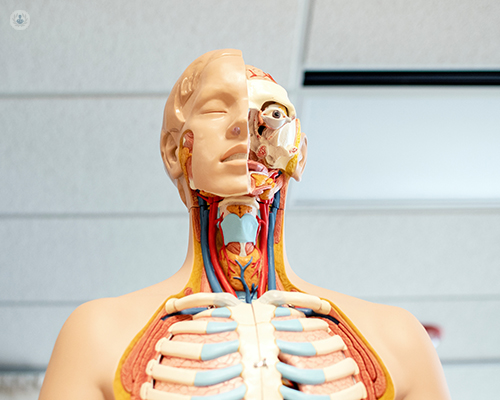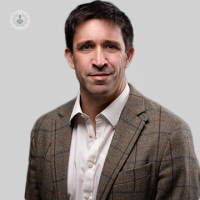Adenoids: what are they and how should they be treated?
Escrito por:Adenoids, which are found at the back of the nose, can cause issues such as nasal blockage as well as various medical complications related to sleep. In our latest article, experienced ENT surgeon, Professor Stuart Winter, is on hand to offer us his expert knowledge with regards to what adenoids are exactly, and tells us when the time is right for them to be removed.

What are adenoids and what causes them?
Adenoids are normal parts of the lymphatic system and make up part of the lymphoid tissue at the back of the nose. Lymphoid tissue is also in your tonsils and there is a ring of it at the back of the mouth. For the majority of people, the adenoids get smaller as you get older. While historically they were removed routinely, the operation is now performed when the adenoids start causing problems.
Why should they be removed?
The adenoids can block the eustachian tube, which is the tube that allows air to enter your middle ear. If this tube gets blocked, fluid can then build up in the middle ear (glue ear). If this begins to cause problems, this can be an indication that it is the right time to remove the adenoids. The adenoids can sometimes block the nose, leading to nasal obstruction or can also contribute to snoring and/or sleep apnoea. Very occasionally, cancers can arise either in the lymphoid tissue or at the site of the adenoids.
What can be expected form an adenoidectomy?
The operation is performed through the use of a general anaesthetic. Patients may experience some pain after an adenoidectomy, but this should settle in a few days. There is a small risk of bleeding hereafter that would require a return to theatre, but this is much less likely than having your tonsils removed. There is also small risk of nasal escape but this usually also settles after a few days.
Are results from the procedure permanent or can adenoids grow back?
In general, the operation is permanent. However, it is extremely difficult to remove all of the adenoidal tissue. As a result, in some cases, the remaining tissue can enlarge again in the future.
Professor Stuart Winter is a vastly experienced ear, nose and throat (ENT) surgeon who specializes in salivary gland surgery. If you would like to seek more information regarding adenoids, you may wish to consult with an esteemed ENT surgeon such as Professor Winter. Check out his Top Doctors profile here.


